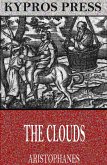In "The Clouds," Aristophanes crafts a sharp and satirical comedy that critiques the intellectual trends of 5th-century Athens, particularly the rise of sophistry and the emerging new philosophies. Through the lens of the character Strepsiades, the play delves into themes of education, morality, and the absurdity of contemporary thought, employing a rich tapestry of wit, wordplay, and farcical situations. Aristophanes'Äôs trademark use of exaggerated characters and poetic language not only entertains but also provokes profound reflections on societal values and the relevance of genuine wisdom versus cunning rhetoric. Aristophanes, a seminal figure in Ancient Greek theater, thrived during a time of significant cultural and philosophical transformation. Growing up in a society grappling with the aftermath of war and political upheaval, his experiences deeply informed his criticisms of social institutions and philosophical pretensions. His commitment to exploring the complexities of human nature and the follies of contemporary life is vividly realized in "The Clouds," showcasing his exceptional ability to blend humor with incisive social commentary. I highly recommend "The Clouds" to readers interested in the interplay of comedy and philosophy, as well as those eager to understand the foundations of Western thought and humor. The play'Äôs timeless themes resonate with modern audiences, inviting them to question their beliefs and the merit of certain ideologies, making it a quintessential read for anyone seeking intellectual enrichment through the lens of ancient satire.
Dieser Download kann aus rechtlichen Gründen nur mit Rechnungsadresse in A, B, BG, CY, CZ, D, DK, EW, E, FIN, F, GR, H, IRL, I, LT, L, LR, M, NL, PL, P, R, S, SLO, SK ausgeliefert werden.









